While everyone remembers the debonair leading man from classics like “North by Northwest” and “Bringing Up Baby,” Cary Grant’s filmography contains numerous hidden gems that showcase his remarkable range and timeless appeal. That impeccable timing, those arched eyebrows, and the ability to transition from sophisticated charm to physical comedy made Grant a singular talent in Hollywood’s golden age. As we revisit these overlooked performances, it’s clear why no one before or since has quite captured Grant’s unique blend of elegance and accessibility that made audiences feel simultaneously dazzled and warmly welcomed.
1. “Holiday” (1938)

Before teaming up for “The Philadelphia Story,” Grant and Katharine Hepburn delivered this delightful George Cukor comedy about a free-spirited man engaged to a wealthy woman but finding himself drawn to her unconventional sister. Grant’s Johnny Case is a refreshing departure from typical romantic leads—a man determined to work just enough to enjoy life rather than sacrifice happiness for financial success. His playful acrobatics in the upstairs playroom reveal the physical agility that made Grant’s comedy so distinctive, blending his circus training background with sophisticated dialogue delivery. IMDb shows that a lot of movie-lovers still think about this movie with some fondness, but it’s due for a rewatch and reconsideration.
The film’s exploration of choosing personal fulfillment over societal expectations feels surprisingly modern even today. Grant brings a sincerity to Johnny that makes his philosophical outlook seem less like rebellion and more like common sense. The chemistry between Grant and Hepburn crackles with intellectual energy rather than just romantic tension, creating a partnership of kindred spirits that feels genuinely earned.
2. “People Will Talk” (1951)
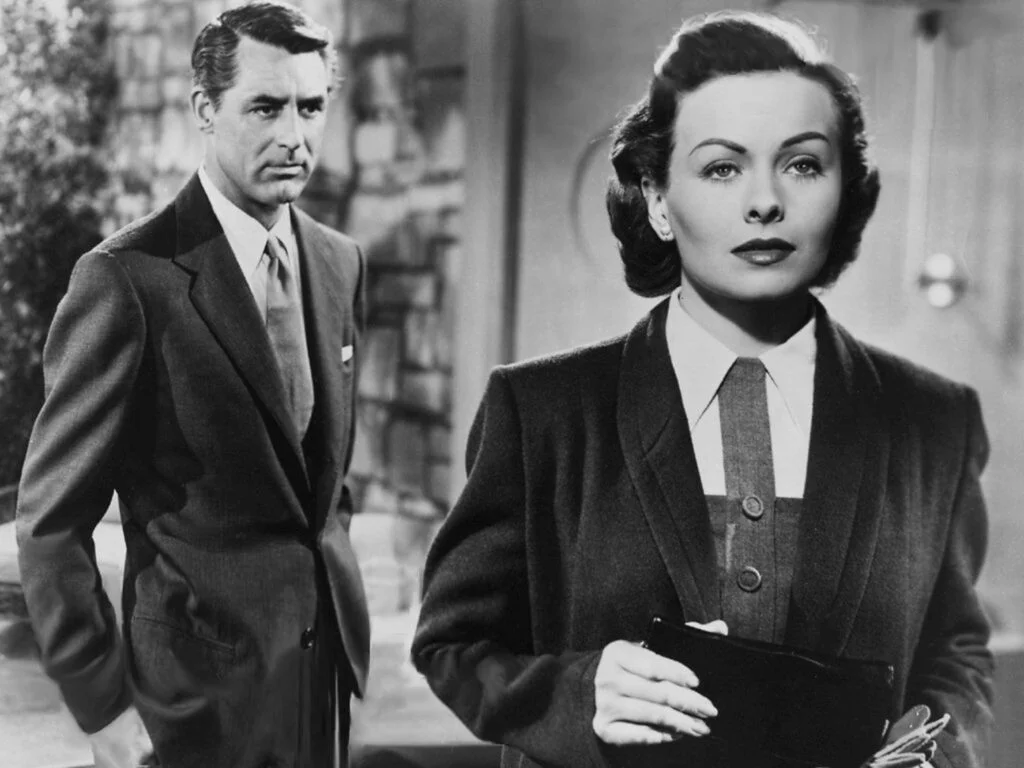
In this Joseph L. Mankiewicz dramedy, Grant plays Dr. Noah Praetorius, an unconventional physician with a mysterious past who becomes the target of a witch hunt by a jealous colleague. Grant brings remarkable depth to this humanitarian doctor who treats the whole person rather than just symptoms, showcasing his ability to convey moral conviction without seeming preachy. The film tackles serious subjects including suicide, unwed motherhood, and academic politics, with a deft touch that was unusual for its era. Turner Classic Movies notes the complexities that drive this thoughtful film.
Grant’s performance is particularly noteworthy for its gentle authority and compassion, qualities that expanded his typical screen persona in meaningful ways. His scenes with Jeanne Crain display a protective tenderness that differs from his more playful romantic pairings. The courtroom-like inquiry sequence allows Grant to deliver righteous indignation with the perfect balance of dignity and moral outrage, demonstrating his dramatic abilities beyond his renowned comedic timing.
3. “Mr. Blandings Builds His Dream House” (1948)
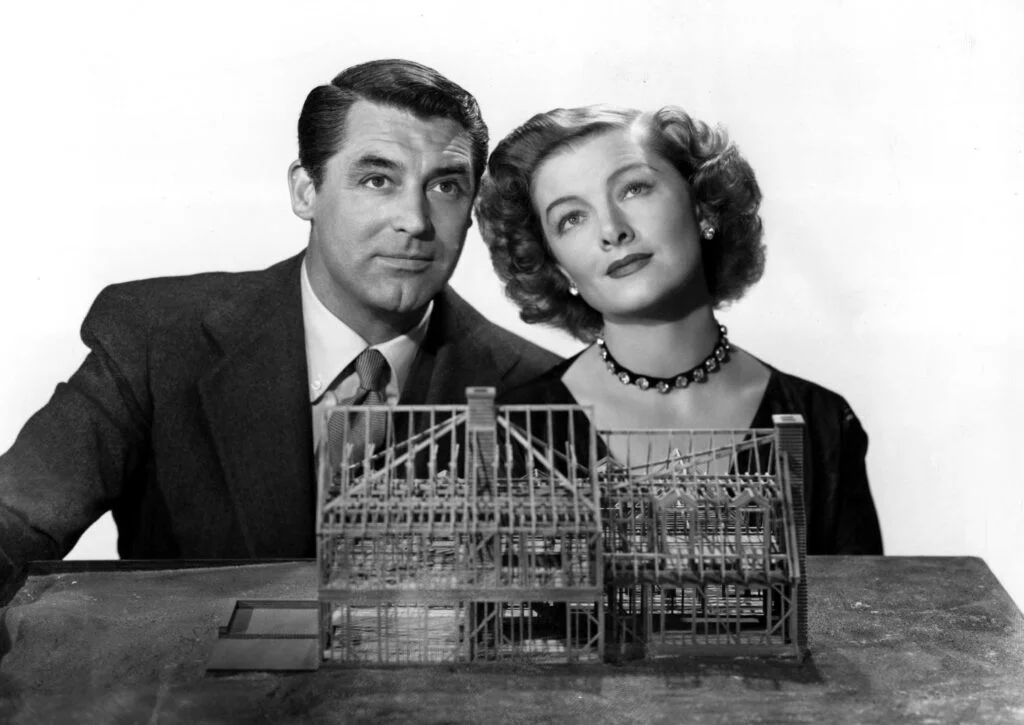
This delightful comedy of errors follows advertising executive Jim Blandings and his wife as they flee Manhattan apartment life to renovate a dilapidated Connecticut farmhouse, with predictably disastrous results. Grant excels as the urban professional slowly unraveling as costs mount and complications multiply in his pursuit of domestic perfection. His reactions to discovering structural issues and navigating contractors showcase his gift for communicating volumes through subtle facial expressions—the slightly widened eyes, the clenched jaw, the forced smile of a man watching his savings disappear. An article from The New York Times at the time of its premiere frames the film’s release with bigger events happening in America that were highly related.
The film’s satirical look at post-war American consumerism and suburban aspirations feels remarkably relevant to today’s home renovation obsessions. Grant and Myrna Loy create a believable marriage of exasperation and affection that grounds the escalating property chaos. The scene where Grant attempts to describe different paint colors to contractors (“It’s not white, it’s not cream, it’s just a sort of…well, it’s the color of a fresh-faced girl on a spring morning”) remains a masterclass in comedic frustration delivered with impeccable timing.
4. “None But the Lonely Heart” (1944)
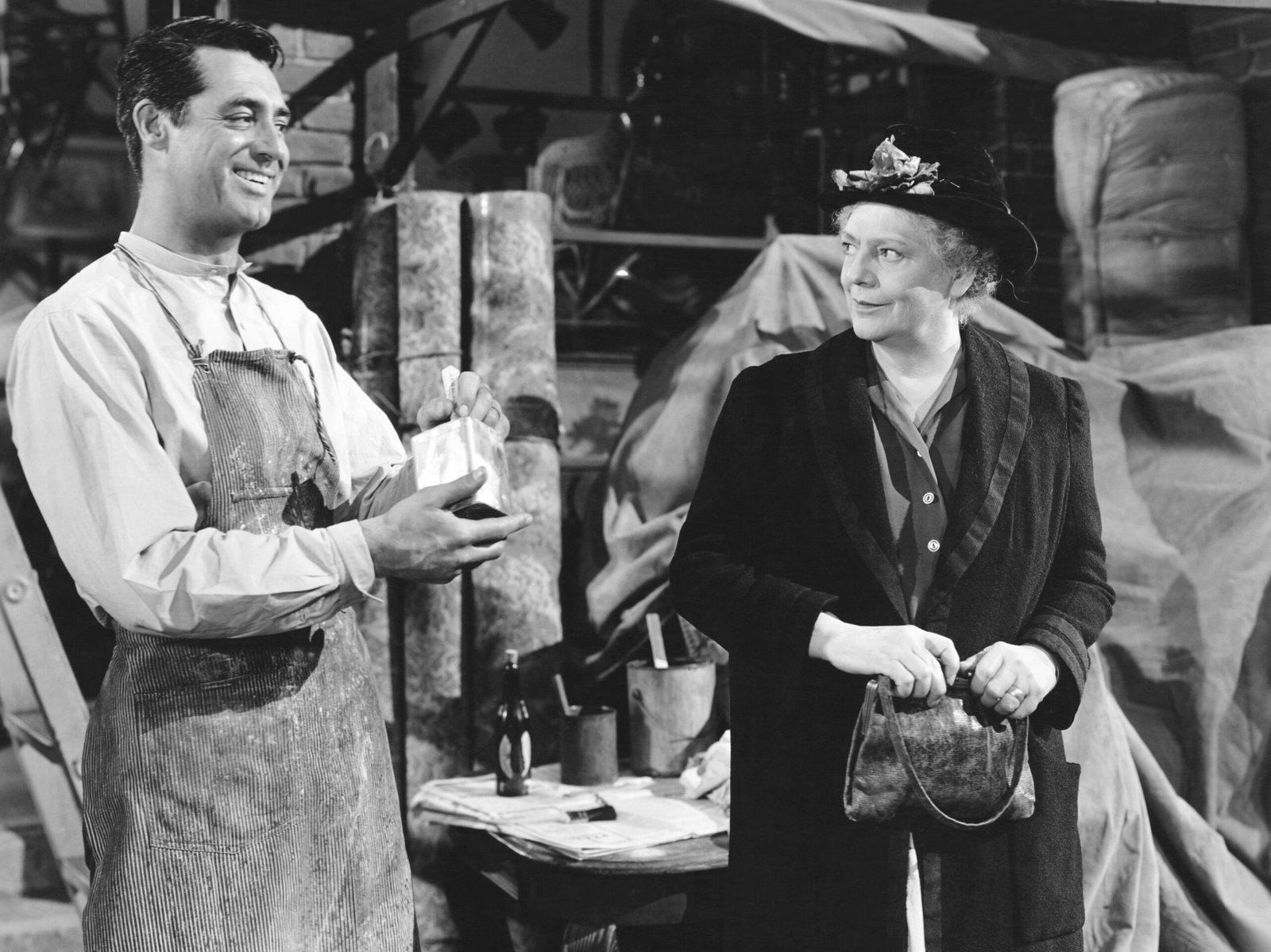
In his most significant dramatic departure, Grant plays Ernie Mott, a restless, working-class Cockney drifter who returns home to care for his terminally ill mother in London’s East End. Trading his trademark suave persona for unwashed hair and a slouched posture, Grant reconnected with his British roots to deliver a raw, vulnerable performance that earned him his only Academy Award nomination. His scenes with Ethel Barrymore (who won an Oscar for her role) achieve a painful emotional honesty rarely seen in his more famous roles.
Director Clifford Odets’ gritty look at poverty and moral compromise allowed Grant to explore darkness largely absent from his filmography. The film’s social consciousness and unflinching look at difficult choices showcase dimensions of Grant’s talent that Hollywood rarely tapped. Hearing his natural British accent emerge in this performance reminds viewers of the carefully constructed nature of his typical screen persona.
5. “In Name Only” (1939)
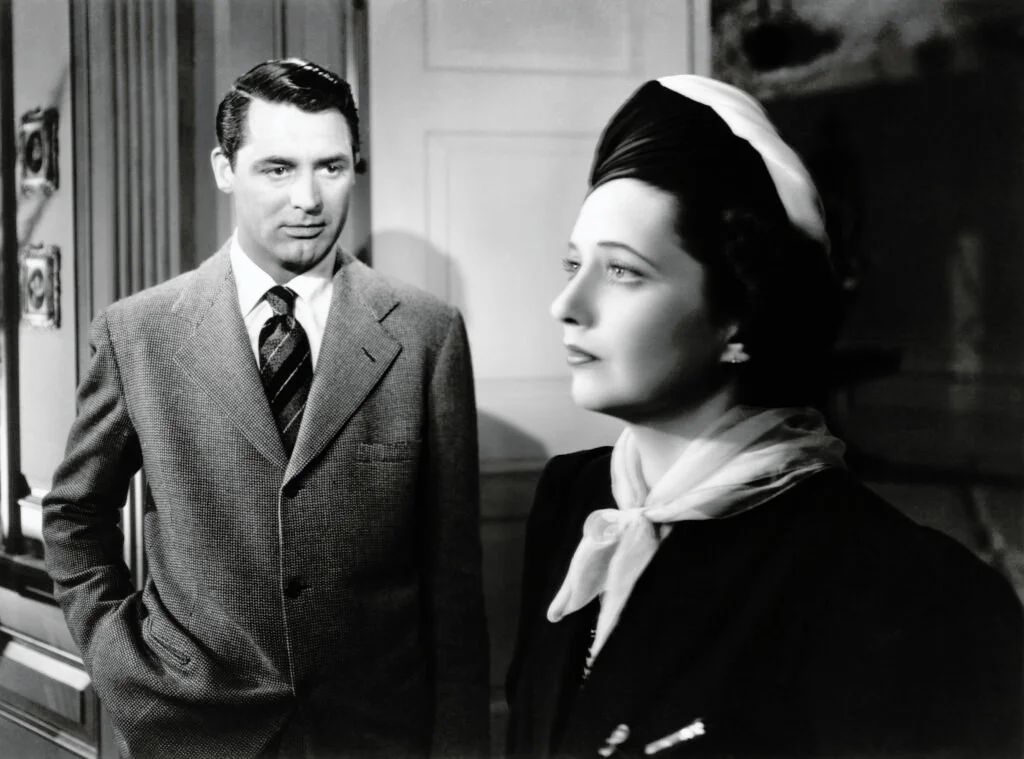
This romantic drama casts Grant as a wealthy man trapped in a loveless marriage to a coldly manipulative wife (Kay Francis) when he falls for a young widow (Carole Lombard). Grant brings surprising emotional vulnerability to the role of Alec Walker, a decent man caught between obligation and genuine love. His scenes of quiet desperation as he realizes the depth of his wife’s deception show Grant’s ability to convey profound disappointment without overplaying the emotion.
The film’s adult approach to marital discord was somewhat daring for its era, presenting divorce as sometimes necessary rather than scandalous. Grant and Lombard create a romance built on mutual respect and understanding rather than mere physical attraction. The Christmas hospital sequence, where Grant’s character faces potential death while estranged from Lombard, achieves a heartrending poignancy that showcases Grant’s ability to make audiences deeply invest in his character’s happiness.
6. “Mr. Lucky” (1943)
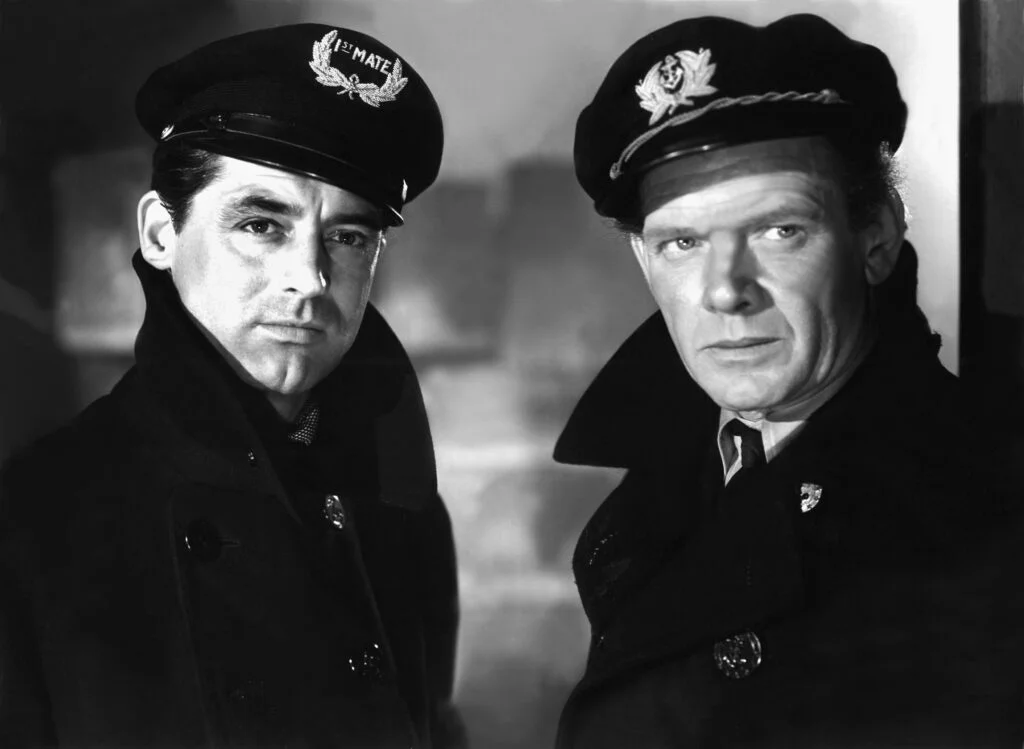
In this wartime romance, Grant plays Joe “The Greek” Adams, a charming gambler who attempts to scam a war relief charity but gradually finds his conscience awakened. Grant brilliantly navigates his character’s moral evolution from opportunistic rogue to reluctant hero without ever making the transformation seem forced or unearned. His mastery of dialect is subtly showcased as his character initially pretends to speak broken English before revealing his natural speech—a small touch that demonstrates Grant’s meticulous approach to character details.
The gambling ship sequences highlight Grant’s easy physicality and comfort with portraying a man from a rougher background than his typical sophisticated characters. His chemistry with Laraine Day feels genuine as she becomes both his romantic interest and his moral compass. The sweater-knitting running gag provides delightful comedy while simultaneously showing the character’s gradual transformation through his willingness to appear foolish for a good cause.
7. “Indiscreet” (1958)
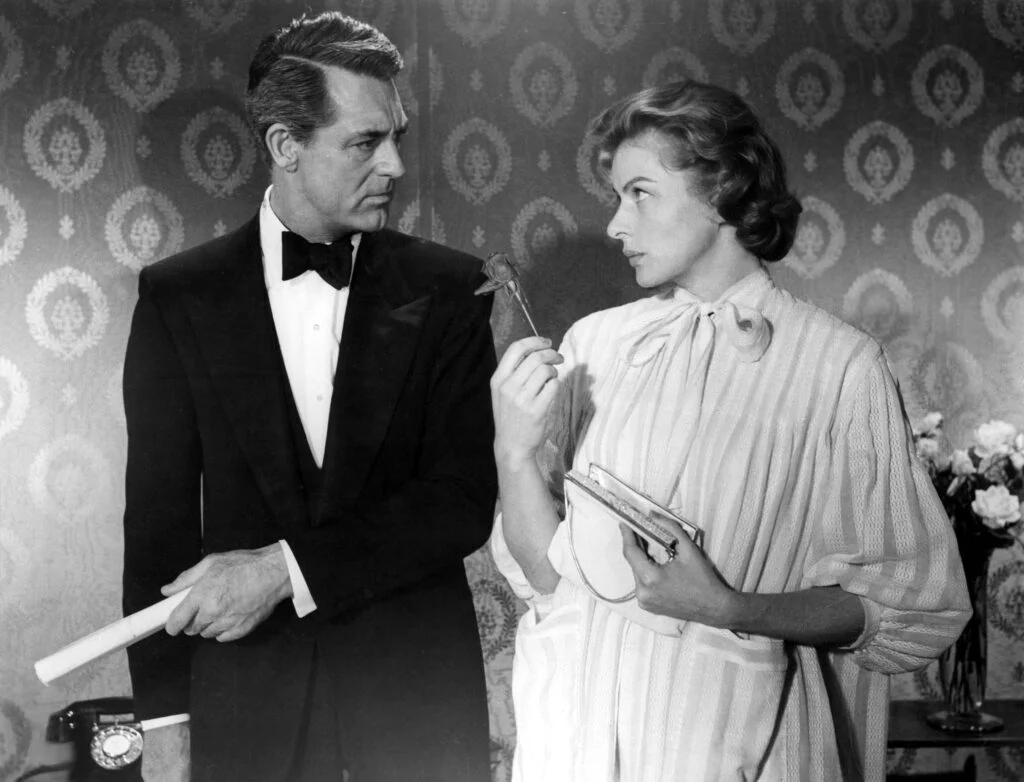
Reuniting with “An Affair to Remember” director Stanley Donen, Grant plays Philip Adams, a financial expert who claims to be married to avoid commitment—until he meets famous actress Anna Kalman (Ingrid Bergman). Despite being in his mid-50s during filming, Grant demonstrates why he remained a credible and compelling romantic lead well into his later years. The film’s sophisticated approach to adult relationships allows Grant to display remarkable chemistry with Bergman in their second pairing.
The famous “angry dance” scene, where Bergman’s character privately expresses her fury after discovering Grant’s deception, showcases his ability to react with perfect comedic timing without saying a word. Grant navigates the comedy of romantic deception while maintaining an underlying sincerity that makes the audience root for him despite his dubious behavior. The London apartment setting provides a elegant backdrop for what amounts to a thoughtful chamber piece about trust, honesty, and the games people play in relationships.
8. “Talk of the Town” (1942)
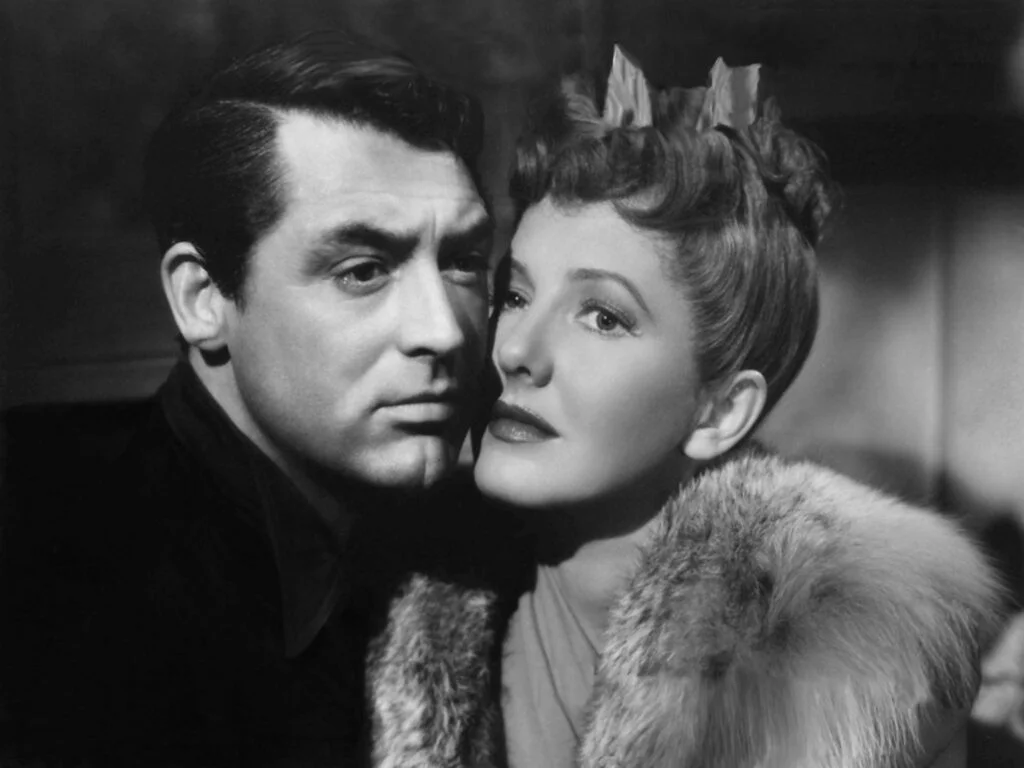
This unique blend of screwball comedy, legal drama, and social commentary features Grant as Leopold Dilg, a factory worker falsely accused of arson and murder who hides in the home of schoolteacher Nora Shelley (Jean Arthur) while legal scholar Michael Lightcap (Ronald Colman) is renting the property. Grant brings a rumpled, world-weary quality to Dilg that contrasts effectively with both Arthur’s nervous energy and Colman’s academic rigidity. His impassioned speeches about justice arising from real-world experience rather than legal theory reveal Grant’s ability to deliver substantive ideological content without sounding didactic.
The film’s exploration of the tension between law and justice gives Grant opportunities to display righteous anger typically absent from his more polished characters. His scenes with Colman create a fascinating dynamic as theoretical principles confront practical realities in their debates about the legal system. The transformation of adversaries to allies progresses with remarkable naturalism as Grant’s character gradually reveals his depth of character and fundamental decency beneath his initial suspiciousness.
9. “Room for One More” (1952)
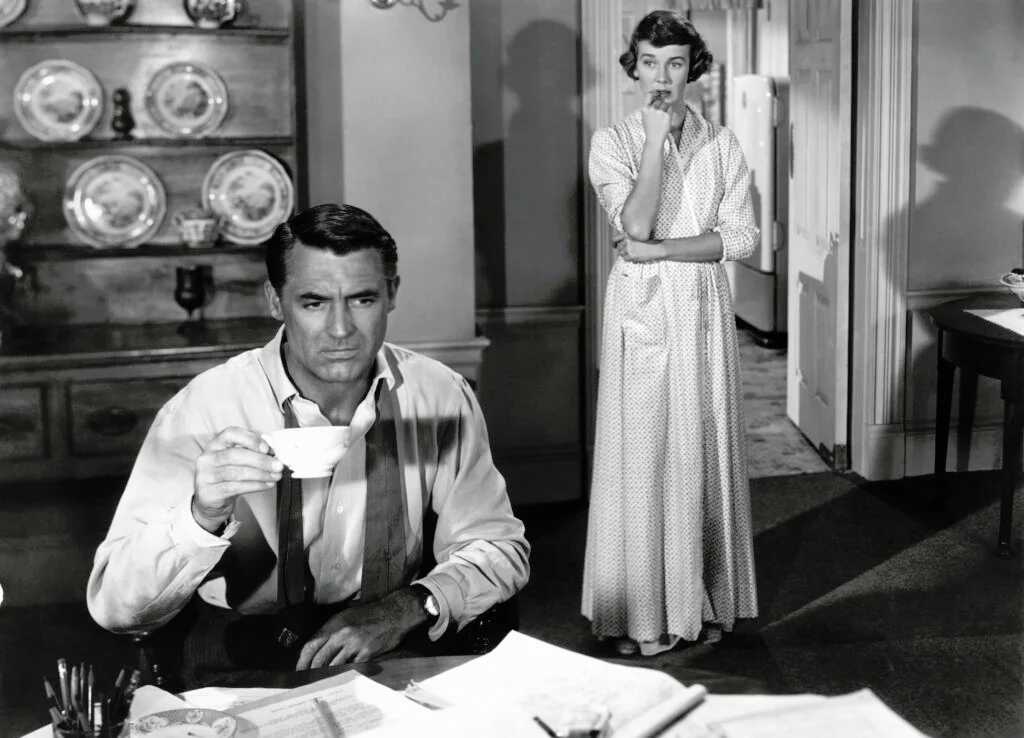
This heartwarming family comedy-drama based on a true story casts Grant and his then-wife Betsy Drake as a couple who keep adding troubled foster children to their already full household. Grant brings tremendous warmth and paternal affection to the role of “Poppy,” showing a nurturing side rarely featured in his more famous roles. His scenes with the various child actors achieve a natural, unforced quality that makes the family dynamics thoroughly believable.
Grant’s performance is particularly effective in balancing humor with genuine emotional stakes as the family faces the challenges of helping traumatized children. His confrontation with neighbors who don’t want a juvenile delinquent in the area reveals Grant’s ability to convey righteous indignation without losing his fundamental likability. The baseball coaching sequences showcase Grant’s physical comedy abilities in a refreshingly down-to-earth context, far removed from the sophisticated drawing rooms of many of his better-known films.
10. “Crisis” (1950)
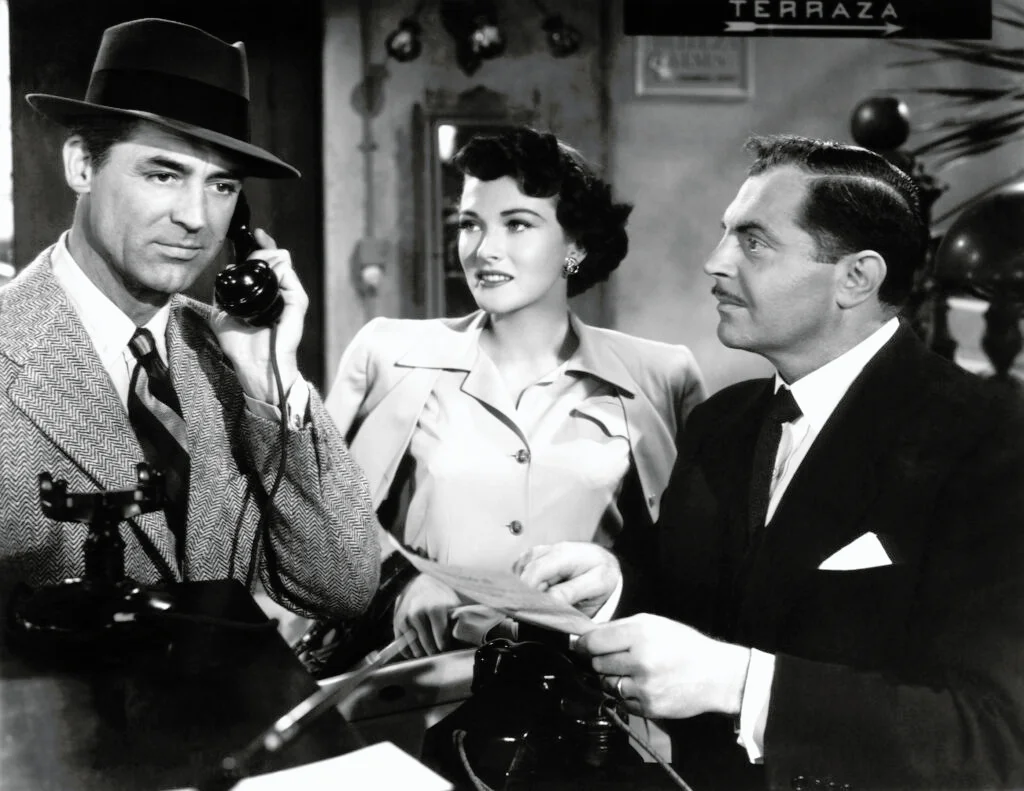
In this tense political thriller, Grant portrays Dr. Eugene Ferguson, an American brain surgeon forced to operate on a Latin American dictator while revolutionaries, led by the dictator’s enemies, hold his wife hostage. Grant brings understated intensity to this ethical dilemma, creating a believable medical professional rather than an action hero as he navigates impossible choices. His performance captures the mounting pressure of a man trapped between his Hippocratic oath and his concern for his wife’s safety with subtle shifts in his typically composed demeanor.
The film’s exploration of political neutrality versus moral responsibility allows Grant to convey complex internal conflict largely through his expressive eyes. His scenes with José Ferrer, who plays the charismatic but ruthless dictator, create fascinating tension between two men of intelligence and conviction with fundamentally opposed values. The operating room sequence achieves remarkable suspense through Grant’s focused performance as a surgeon attempting to maintain professional detachment while facing extraordinary pressure.
11. “Dream Wife” (1953)
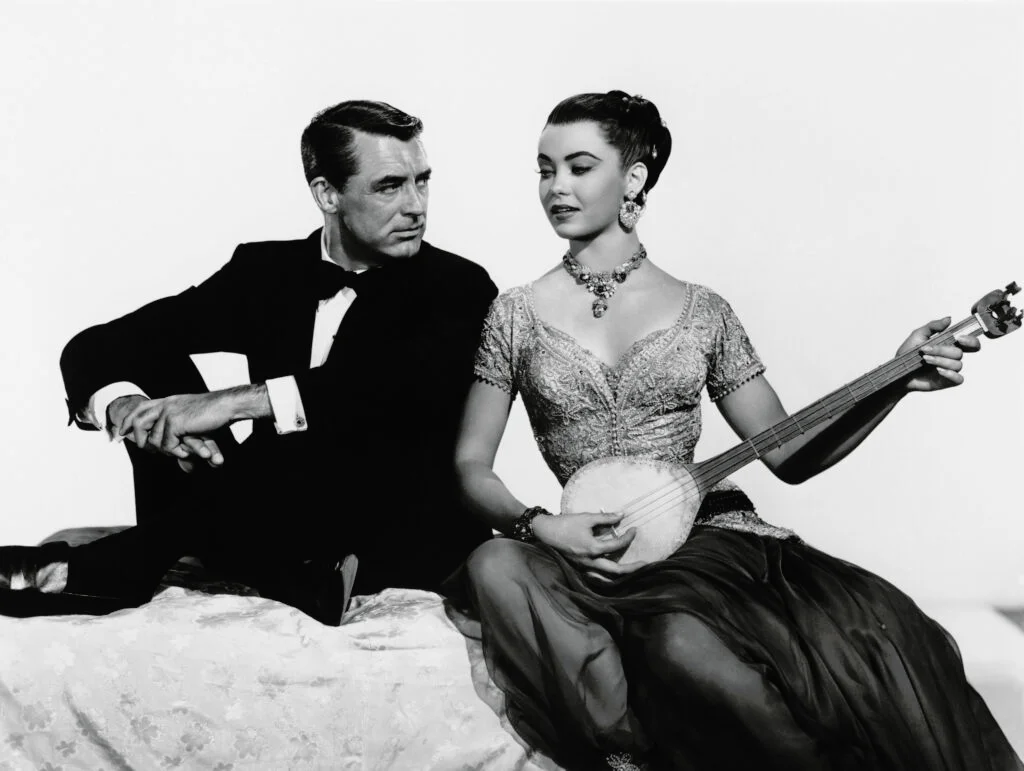
This romantic comedy casts Grant as Clemson Reade, a businessman who breaks his engagement to career-focused diplomat Effie (Deborah Kerr) to pursue a traditional “dream wife” from the fictional Middle Eastern country of Bukistan. Grant skillfully navigates the film’s satirical elements, poking fun at both rigid gender expectations and his own screen persona as the perpetually eligible bachelor. His growing realization that his “ideal” traditional bride comes with complications delivers comedy through his increasingly desperate attempts to maintain control of an uncontrollable situation.
While some cultural elements haven’t aged well, Grant’s performance remains a fascinating exploration of changing gender roles in the post-war era. His eventual recognition of Effie’s professional value and personal worth creates a surprisingly progressive resolution for a film of its vintage. The sequence where he attempts to negotiate with Betta St. John’s character through multiple interpreters showcases Grant’s gift for building comedic frustration to its breaking point without losing audience sympathy.
12. “Houseboat” (1958)
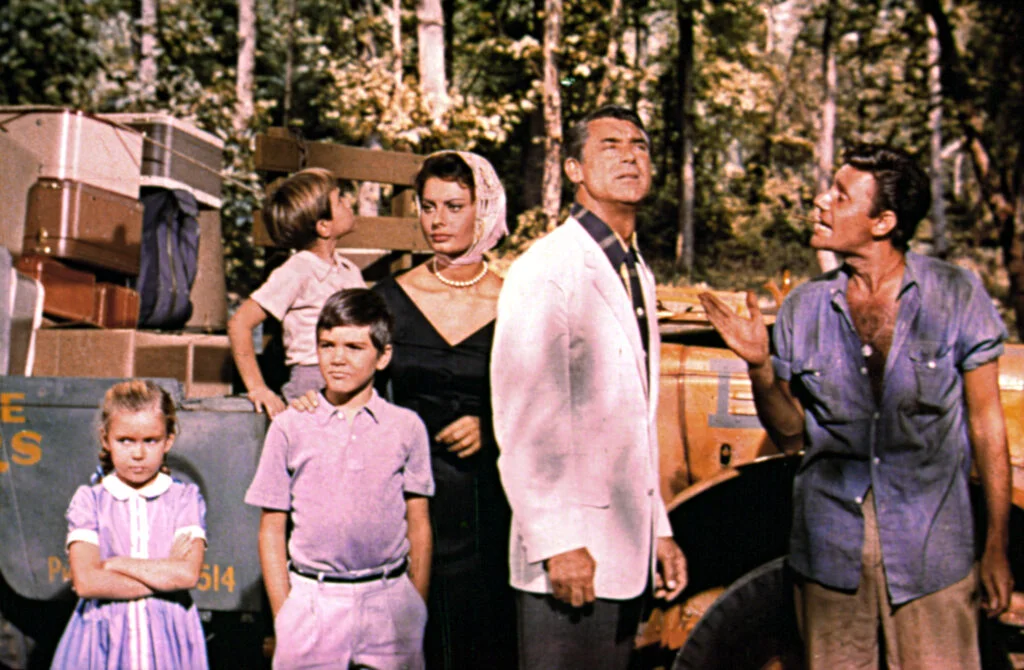
Following his suave sophisticate in “To Catch a Thief,” Grant plays a very different kind of role here—Tom Winters, a widowed father struggling to connect with his three children while rebuilding his life. Grant brings genuine paternal concern and occasional cluelessness to this character, creating authentic family dynamics rarely featured in his more glamorous roles. His scenes with the child actors achieve a touching awkwardness as this emotionally distant father gradually learns to engage with his grieving children.
Sophia Loren provides both romantic interest and unexpected domestic help as an aristocrat’s daughter hiding her identity, creating a disruptive force that ultimately helps heal this fractured family. Grant’s physical comedy shines in the sequences dealing with the ramshackle houseboat, from falling through the floor to battling plumbing disasters with increasing desperation. The dance sequence where Grant attempts to connect with his withdrawn son creates a moment of genuine emotional breakthrough that demonstrates his ability to convey profound feeling with remarkable restraint.
Even in these less celebrated films, Cary Grant’s unmatched screen presence reminds us why he remains the gold standard for leading men nearly sixty years after his retirement. His ability to convey complex emotions beneath a polished exterior, transition seamlessly between comedy and drama, and make audiences feel simultaneously charmed and understood created an intimacy that transcended the screen. While his iconic roles in Hitchcock thrillers and screwball comedies secured his place in film history, these overlooked gems reveal the full range of his remarkable talent—a charismatic performer whose work continues to feel surprisingly contemporary despite the changing fashions and filmmaking styles. In an era of method acting and psychological intensity, Grant’s effortless grace reminds us of the equally valuable art of making difficult things look easy.


